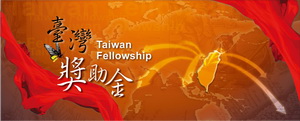On
November 29, 2021, at 6 pm, NCL co-organized the “Taiwan Lectures on Taiwan
Studies” Series with the National Library of Latvia. Prof. Hui-Wen Lu was
invited to present online on “Wild Cursive Calligraphy, Poetry, and Buddhist
Monks in the Eighth Century and Beyond”.
Prof.
Hui-Wen Lu is the Director of the Graduate Institute of Art History at National
Taiwan University. She received her PhD in Chinese art and archaeology from
Princeton University. Her field of specialty is the history of calligraphy and painting
in pre-modern China. She is particularly interested in exploring how
calligraphers worked and responded during times of political and cultural
uncertainties, and the various ways in which the art of calligraphy correlates
to other fields of study, such as literature, religion, material culture, and
print culture.
This
lecture was moderated by Georgijs Dunajevs, who is currently a researcher at
the Special Collections of the National Library of Latvia. He gave a short
introduction of the speaker and also hosted the Q&A discussion at the end.
In the first part of the speech, Prof. Lu took the audience into the strange
and enchanting world of the wild cursive calligraphy when it first appeared in
China in the late seventh and early eighth century. This talk also examined its
development in history as it went from being perceived as a magical act
unattainable by human power to a specialized skill manageable by learning.
Retaining great capacity for artistic expression, the wild cursive calligraphy
transformed in time as personal identity, intention, and choice of historical
models varied in the hands of the individual.
This
speech attracted many audience all around the world who are interested in art
history. Due to the Covid-19, NCL will keep holding the “Taiwan Lectures on
Taiwan Studies” Series online to promote the research of Taiwan Studies.










